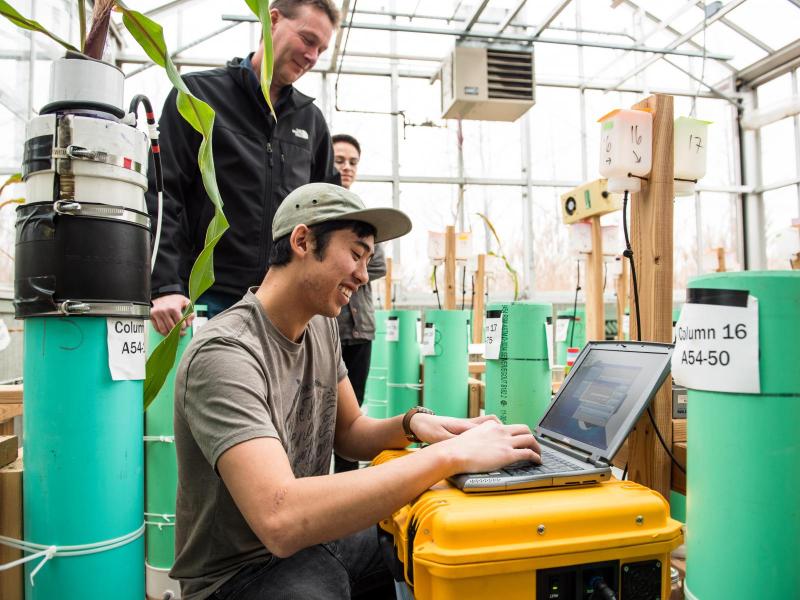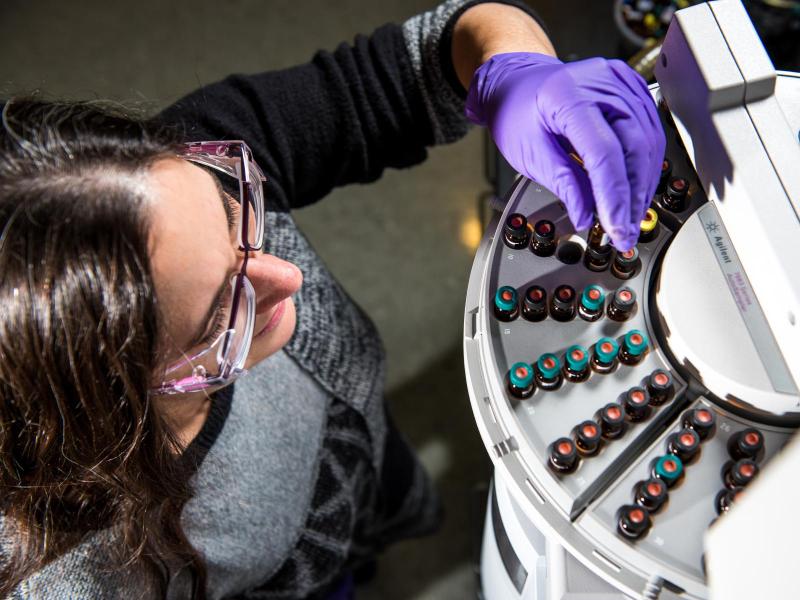Bioenergy Analytical Capabilities at Pacific Northwest National Laboratory
United States

Bioenergy research at Pacific Northwest National Laboratory (PNNL) supports the Department of Energy's Bioenergy Technologies Office (BETO). BETO’s goal is to develop a viable, sustainable domestic biomass industry that produces renewable biofuels, bioproducts, and biopower; enhances U.S. energy security; and reduces dependence on foreign oil.
PNNL employs several capabilities that help advance BETO’s research goals. Those capabilities are located in Richland, Washington.
Process Development Units

PNNL scientists and engineers have long performed research with hydrothermal liquefaction (HTL) at a smaller scale—using high temperature and pressure to break down sludge into simpler compounds then turning them into biocrude oil. HTL is ideal for wet feedstock, as other processes used to treat solids require the material to be dried first, which is energy intensive.
Learn about PNNL’s HTL capabilities.
Bioproducts, Sciences, and Engineering Laboratory

On the campus of nearby Washington State University (WSU)-Tri-Cities, the Bioproducts, Sciences, and Engineering Laboratory (BSEL) is devoted to the science and engineering of deriving energy sources from agricultural residues (e.g., corn stover and wheat straw), forest residues, municipal and industrial waste streams, and other renewable resources. BSEL houses both PNNL and WSU researchers, enabling collaborative research and developing a pipeline of talent to meet future workforce needs. This is further enforced by the WSU-PNNL Bioproducts Institute, which extends our WSU partnership to all WSU campuses.
Learn what capabilities are housed in BSEL.
Analytical Chemistry Laboratory

Located in BSEL is the Analytical Chemistry Laboratory, where thousands upon thousands of samples are processed for a multitude of PNNL projects. The laboratory is an on-campus service center available to PNNL staff. With 25 instruments that perform eight different types of analyses, it is a Disneyland for chemists—minus the long lines. Having this suite of capabilities in one place increases efficiency of sample processing and decreases wait time.
Read PNNL’s story about the Analytical Chemistry Laboratory.